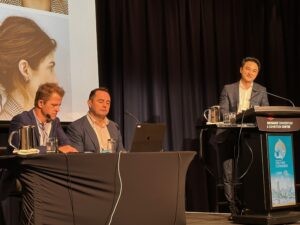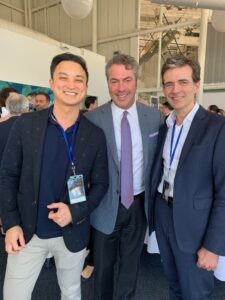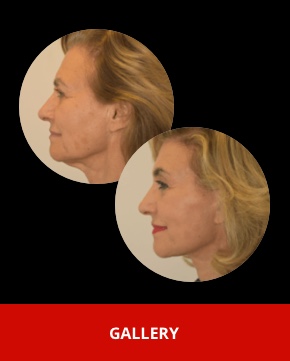Why choose an ENT specialist for facial plastic surgery
Choosing an otolaryngologist (ENT specialist) for facial plastic surgery can offer several advantages due to their specialised training, expertise, and comprehensive understanding of the anatomy and functions of the head and neck region. My colleague Prof Richard Harvey has also written an excellent article discussing the role of ENT specialists (otolaryngologists) as one of if not the main providers of facial plastic surgery in the Australian community. You can read this detailed description here.
Here are the reasons why an otolaryngologist might be a preferred choice for facial plastic surgery:
Specialised Training
- Extensive Education:
- Otolaryngologists undergo rigorous training, including medical school, residency in otolaryngology, and often additional fellowship training in facial plastic and reconstructive surgery. This extensive education ensures they are highly skilled in both the functional and aesthetic aspects of the head and neck.
- Focused Expertise:
- Their training specifically focuses on the anatomy, physiology, and pathology of the head and neck region. This deep understanding allows them to perform facial plastic surgery with a high degree of precision and safety.
Comprehensive Understanding of Facial Anatomy
- In-Depth Knowledge:
- Otolaryngologists have a detailed understanding of the complex anatomy of the face, including bones, muscles, nerves, and blood vessels. This knowledge is crucial for achieving natural-looking results and avoiding complications.
- Function and Aesthetics:
- They are trained to consider both the functional and aesthetic outcomes of surgery. For example, when performing rhinoplasty, they ensure that the patient’s breathing is not compromised while achieving the desired cosmetic result.
Experience with Diverse Conditions
- Range of Procedures:
- Otolaryngologists are experienced in a wide range of procedures, from cosmetic enhancements like rhinoplasty, facelift, and blepharoplasty to reconstructive surgeries for trauma, congenital anomalies, and cancer.
- Complex Cases:
- They often manage complex cases involving both cosmetic and functional issues, such as correcting nasal obstructions while performing aesthetic rhinoplasty, which requires a high level of skill and expertise.
Holistic Approach
- Integrated Care:
- Otolaryngologists can provide comprehensive care that addresses both cosmetic and medical issues. For example, they can treat sinus problems, breathing difficulties, and snoring in conjunction with performing facial plastic surgery.
- Long-Term Outcomes:
- Their holistic approach ensures that the surgical outcomes are sustainable and functional, contributing to the patient’s overall well-being and quality of life.
Advanced Surgical Techniques
- Innovation and Research:
- Many otolaryngologists are involved in research and development of advanced surgical techniques and technologies. This keeps them at the forefront of innovation in facial plastic surgery.
- Minimally Invasive Options:
- They are adept at using minimally invasive techniques that reduce recovery time, minimise scarring, and achieve natural-looking results.
Patient Safety and Comfort
- Comprehensive Preoperative Assessment:
- Otolaryngologists perform thorough preoperative evaluations to ensure patients are suitable candidates for surgery, which enhances safety and reduces the risk of complications.
- Postoperative Care:
- They provide meticulous postoperative care, closely monitoring healing and addressing any complications promptly, ensuring the best possible outcome for their patients.
Reputation and Certification
- Board Certification:
- Many otolaryngologists are board-certified by organisations such as the International Board for Certification in Facial Plastic and Reconstructive Surgery. You can check if your surgeon has this certification on their website. This certification indicates a high level of competence and adherence to strict ethical standards.
- Professional Memberships:
- Membership in professional organisations like the Australian Academy of Facial Plastic Surgery which meets monthly for clinical meetings and yearly for an international conference reflects a commitment to ongoing education and excellence in the field.
Multidisciplinary Collaboration
- Team Approach:
- Otolaryngologists often work in multidisciplinary teams with other specialists, such as dermatologists, ophthalmologists, and maxillofacial surgeons, providing comprehensive care and leveraging a wide range of expertise for optimal patient outcomes.
- They are well known within the surgery disciplines to be friendly and collegiate and are happy to work together with or refer patients to other specialities to assist patients to obtain the best possible outcomes.
- Patient safety is paramount.
- Anti-competitive behaviour is strongly discouraged.
Choosing an otolaryngologist for facial plastic surgery ensures that patients receive expert care from a specialist with a deep understanding of both the aesthetic and functional aspects of the head and neck, leading to safer procedures, better outcomes, and enhanced overall satisfaction.










